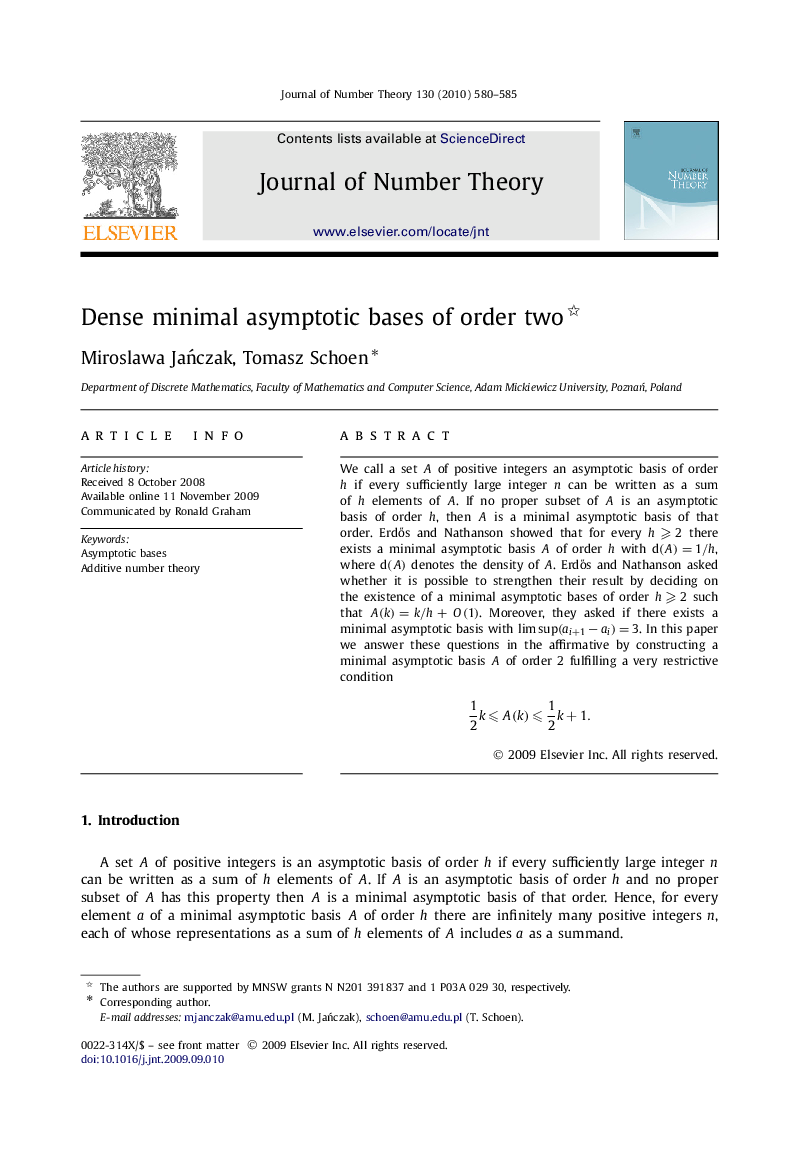| Article ID | Journal | Published Year | Pages | File Type |
|---|---|---|---|---|
| 4594826 | Journal of Number Theory | 2010 | 6 Pages |
We call a set A of positive integers an asymptotic basis of order h if every sufficiently large integer n can be written as a sum of h elements of A. If no proper subset of A is an asymptotic basis of order h, then A is a minimal asymptotic basis of that order. Erdős and Nathanson showed that for every h⩾2h⩾2 there exists a minimal asymptotic basis A of order h with d(A)=1/hd(A)=1/h, where d(A)d(A) denotes the density of A . Erdős and Nathanson asked whether it is possible to strengthen their result by deciding on the existence of a minimal asymptotic bases of order h⩾2h⩾2 such that A(k)=k/h+O(1)A(k)=k/h+O(1). Moreover, they asked if there exists a minimal asymptotic basis with lim sup(ai+1−ai)=3lim sup(ai+1−ai)=3. In this paper we answer these questions in the affirmative by constructing a minimal asymptotic basis A of order 2 fulfilling a very restrictive condition12k⩽A(k)⩽12k+1.
